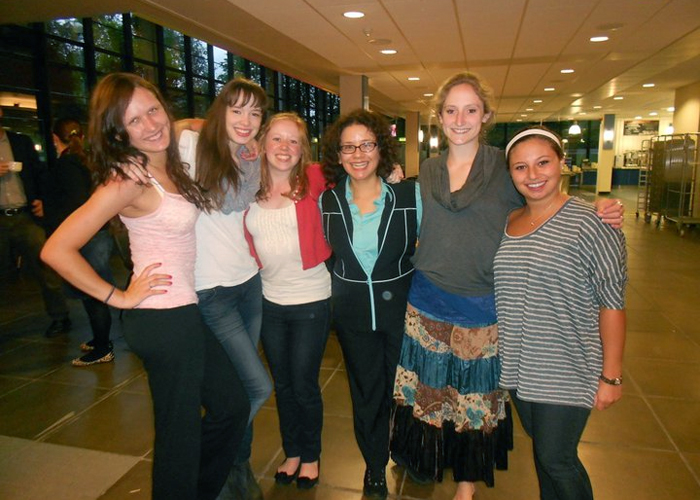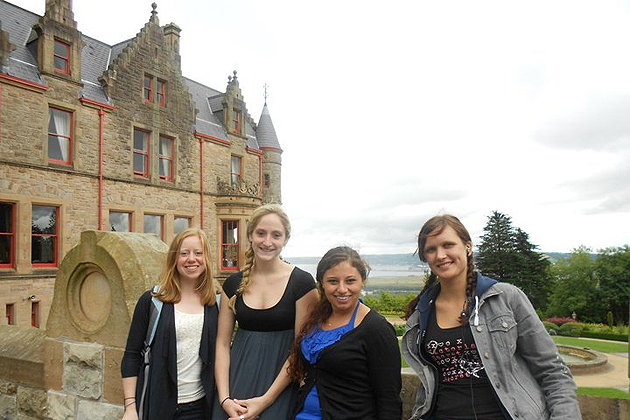
If you’re going to study conflict and conflict resolution, there are few better places to hold a conference than Ireland—long home of The Troubles. So that’s what the leaders of Universitas 21, an international network of leading research-intensive universities, did from July 11 to 19.
“Belfast was sobering,” says Grace Vasington, a participant at the conference who will be a junior at UConn this fall. “While parts of the city are very beautiful and alive, others look like a continuing war zone. Peace Walls, most of which have gone up since the war, rise 40 feet into the air and separate Republican communities from Loyalist ones. Many are covered in elaborate—often political—graffiti and murals. One of the most amazing things about it was just how many people, Irish and foreigners alike, had written prayers for peace” on the walls.
The Peace Walls also impressed Dovile Vilkauskaite, who says the visit to Belfast was the highlight of the trip.
“We got to see first-hand the separation of the communities, says Vilkauskaite, a double major in international relations and German. “There were bars on the windows of the schools and homes near the walls, showing the impact of the violence.”
But the students also saw beyond the war.
“Interestingly enough, that was also one of the best nights I had out and amongst the youth,” she says. “There was no visible divide, not one that I could see, anyway. We also had former political prisoners talk to us about their experiences in the conflict and where they stand now, and why they don’t support violent methods anymore. It seems that now they’ve turned to politics to solve their problems.”
UConn joined Universitas 21 in 2010, becoming one of only 23 research universities in the world—and one of only two, with the University of Virginia, in the United States—to become a partner in the consortium. The network’s purpose is to facilitate collaboration and cooperation between the member universities and to create opportunities for them on a scale that none would be able to achieve operating independently or through traditional bilateral alliances. Established in 1997, Universitas 21 engages in a number of activities, including summer schools and research programs for undergraduates.
About 90 students from 15 countries participated in the recent journey to University College Dublin.

“As much as I learned from the formal lectures and group discussions, I feel the most important aspect of the trip was the social aspect,” says Rachael Nave, a senior double major in political science and international relations. “Sitting down and just having conversations with people from anywhere from New Zealand to Sweden to Mexico gave me so many different perspectives on life and allowed me to experience other cultures. We talked about everything from the kind of music and movies we like to our opinions on what sort of culture you’re immersed in. People generally want the same things. I have a new found respect for the way other countries handle their conflicts, and an appreciation for all other cultures.”
Diana Rios, an associate professor of communication sciences in the College of Liberal Arts and Sciences, accompanied the five UConn students. She says the trip was “an eye opener. The days were intense, with workshops, speakers of different types with different themes, from Irish history to former members of Parliament, the three IRA members … It was a very educational experience.”
Rios also led one of the workshops, discussing arms control and arms importing—many of the weapons used in the Irish conflict were imported.
The U21 experience will come to Storrs in 2013, when UConn hosts the summer school. Richard Wilson, director of the Human Rights Institute, will lead workshops and seminars on human rights.



